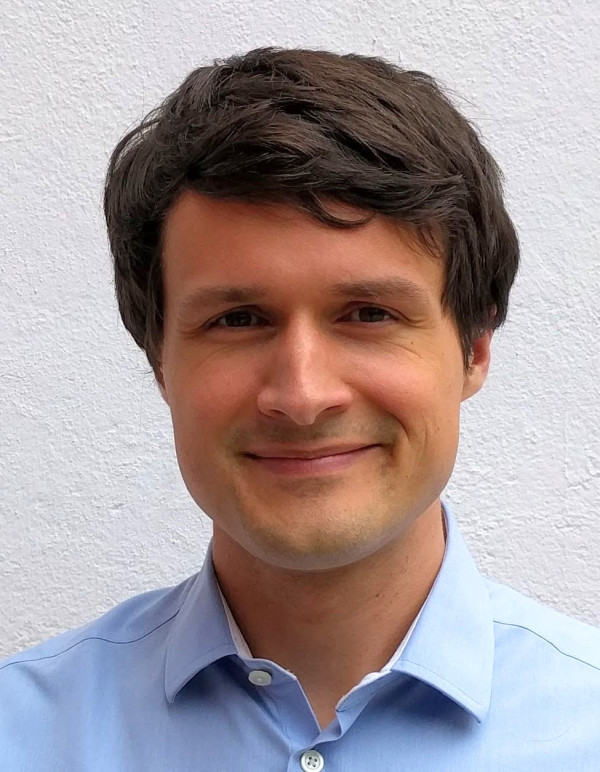Leopold Talirz
Interview by Nicola Nosengo, NCCR MARVEL, September 2023
What was your role in NCCR MARVEL, and what did you focus on at the time?
I started in MARVEL in 2017, working as a sort of liaison person between the groups of Nicola Marzari and Berend Smit. I was originally hired to bring Smit’s efforts on the Nanoporous Materials Genome into the Materials Cloud. But then I realized that there was a lot of work to be done on the Materials Cloud itself. I ended up spending quite a lot of time helping the Materials Cloud launch and then eventually helped integrate Smits’ work in it and in the AiiDA workflow.
What was your path after leaving MARVEL?
Towards the end of my time at MARVEL, my colleague Daniele Ongari and I looked into creating a startup based on the screening of nanoporous materials. That effort lasted a couple of months but we were not able to get it off the ground, because some of the contracts that we were hoping to get did not materialize. After that Daniele decided to look for a position in the industry and I did the same and went to Microsoft. The way it happened was that Matthias Troyer, a member of the Azure Quantum leadership team at Microsoft, used to be a professor of theoretical physics at ETH (as well as a co-founder and PI of MARVEL, by the way). They had used AiiDA in internal research projects before and were looking to hire an AiiDA expert. We did a demo of the new AiiDAlab for them, and they liked it. A few weeks later I told him that my Postdoc at EPFL was ending, and that I had another offer, so they needed to hire me – and they did!

How can you describe your current job?
My job title is senior quantum software engineer. What we do as a team is trying to make it easier to run atomistic simulations in Azure through Azure Quantum Elements (AQE). What I do personally is looking into what software architectures can be used for creating dynamic computer clusters in Azure and eventually develop specific services on top of that. The reason we are in the quantum team is that we believe the first killer application of quantum computers will be simulation of quantum systems, such as molecules and materials at the atomic level. Now we are starting to build a customer base with companies interested in this type of simulations. At the moment we are doing them on classical hardware. There are a lot of things that can be done in the cloud with specialized hardware, in terms of efficiency gains, by taking HPC infrastructure engineering off the customer’s plate, making sure operations are optimized for the hardware, and integrating them with machine learning. AQE today helps speed up simulations and is integrating Large Language Models to make it easier for people to run simulations. Eventually the idea is that when quantum computers come along, they will replace some of the most challenging chemistry calculations for which we are not able to reach the accuracy that we are looking for on classical hardware.
How did the MARVEL experience prepare you for this position?
What I am doing is actually very similar to what I was doing with MARVEL. It’s very important that MARVEL has funding specifically dedicated to software. I think that puts the centre, and Switzerland as a whole, ahead of the game. We see that when we seek new people to hire, and an outsized portion of the good candidates we see comes from Switzerland, considering that it is such a small country. It produces a lot of great people at the interface between software engineering and science.
Was it a big change for you moving from academia to industry?
I started during the pandemic, so it took me more time than usual to get to know the team. Plus, communicating with Redmond involves a 9-hours difference. In terms of the way we think, there’s a lot of people with a science background in our team, but also many people from different areas of the company. I think a big difference is that managers in the industry are managers because they want to. That means that your manager may not be an expert in what you are developing, and there has to be a connection made. You have to be able to explain in simple terms what needs to be done and why.
What advice would you have for young researchers who are considering a career in industry?
A very easy suggestion now is to learn the basics of machine learning models. Apart from that I would say, take advantage of huge network of opportunities you have in MARVEL. Groups in MARVEL are part of many European projects, that give opportunities to get in touch with companies or other research groups. Also, something I did not know about is that many companies offer internships, and even during your PhD you can take 3 months in the summer to do an internship and that’s a very useful thing to do.
